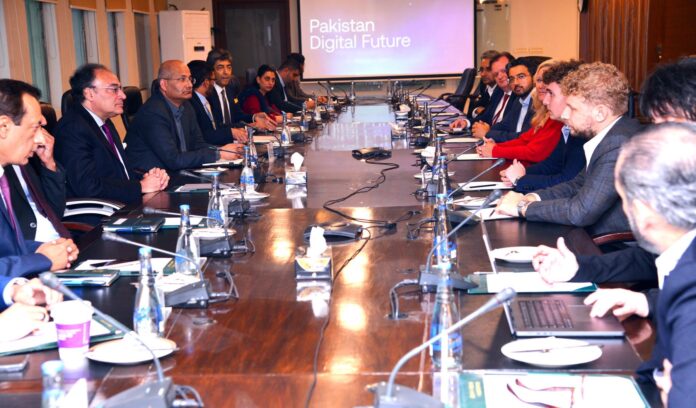ISLAMABAD, Feb 25 (APP): Minister for Finance and Revenue, Senator Muhammad Aurangzeb on Tuesday emphasized the importance of a well-regulated digital asset framework, aligning Pakistan with international best practices and complying with Financial Action Task Force (FATF) guidelines.
While chairing a high-level meeting on digital assets, the minister highlighted the government’s commitment to exploring digital assets and integrating block-chain technology as part of its broader strategy to modernize the financial sector, said a news release.
The meeting was attended by foreign delegates, including President Trump’s Advisors for Digital Assets, Minister of State for IT & Telecom, Ms. Shaza Fatima Khawaja, Governor State Bank, Secretary Finance and Secretary IT & Telecom attended the meeting.
Participants discussed the global evolution of crypto currency, its increasing adoption, and the regulatory frameworks being implemented internationally, in line with U.S. government policies. The deliberations focused on financial security, risk mitigation, and the potential impact of digital assets on Pakistan’s economy.
Discussions also included the tokenization of key infrastructure and state-owned enterprises (SOEs) assets, allowing for increased liquidity, broader investor participation, and greater efficiency in capital markets.
It was noted that various stakeholders, including foreign and domestic investors, have already developed product-ready digital asset solutions that could be explored within a regulatory sandbox.
Pakistan currently has over 20 million active users in the digital asset market who face significant challenges, including high transaction fees.
The minister reaffirmed his commitment to regulating and encouraging this industry by adopting appropriate frameworks, laws, and incentives to ensure transparency and facilitate digital business growth.
He directed relevant stakeholders to formulate a comprehensive framework that ensures security, transparency, regulatory compliance, and economic viability while safeguarding against financial crimes and illicit activities.
He also stressed the need for a balanced approach—one that encourages innovation and investment in digital assets while maintaining strict regulatory oversight in line with international standards.
To enhance this initiative, the government would consider establishing a National Crypto Council, which will serve as a dedicated advisory body comprising key government representatives, regulatory authorities, and industry experts.
This Crypto Council would oversee policy development, address regulatory challenges, and ensure that Pakistan’s digital asset ecosystem evolves in a secure, compliant, and sustainable manner.
The Council would also collaborate with friendly countries to develop standardized frameworks for international digital economic engagement.
The meeting concluded with a consensus on adopting a cautious yet forward-looking approach, ensuring that future developments in the digital asset space align with national interests, FATF guidelines, and global financial standards.

